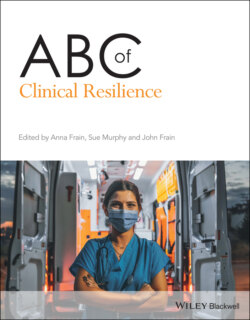Читать книгу ABC of Clinical Resilience - Группа авторов - Страница 16
Box 1.3 Access to personal protective equipment (PPE) in UK healthcare workers from BAME background.
ОглавлениеA survey published by the Royal College of Nursing on 28 May 2020 found that BAME‐category nursing staff were more likely to have difficulty accessing adequate PPE during the Covid‐19 pandemic:
43% of BAME staff had enough eye and face protection, as compared to 66% of white British nursing staff.
37% of BAME nurses did not have enough fluid‐repellent gowns, as compared to 19% of white British nurses.
53% of BAME respondents had been asked to reuse single‐use PPE, as compared to 42% of white British respondents.
40% of BAME staff received training in what PPE to wear, as compared to 31% of white British respondents.
Source: Based on Royal College of Nursing (2020).
How are intelligent kindness and resilience relevant here? An individual cannot be resilient in a system which fails them. Many forms of discrimination including those based on race, gender, sexual orientation and belief exist in healthcare. As individuals and organisations, we need to recognise discrimination and make changes to create a level playing field for all. An individual’s resilience is challenged if their workplace is permeated by discrimination. We should be mindful that our colleagues experience many repeated ways of discrimination:
‘Modern racism is far more subtle. It’s indirect, it’s oblique and it is far more difficult for others who are not on the receiving end of it to detect’.
– Professor Binna Kandola OBE
Our own growth as resilient practitioners includes being able to empathise and understand the lived experiences of those who work alongside us. The concept of whistleblowing as a component of patient safety is now well established. Alongside this, we need to embed within our professional values the need to be ‘active bystanders’ for our colleagues whose resilience and well‐being is undermined by discrimination (Box 1.5)
